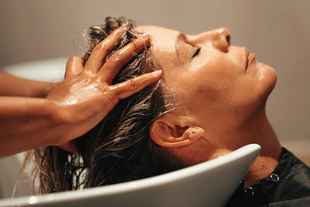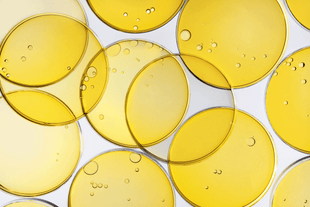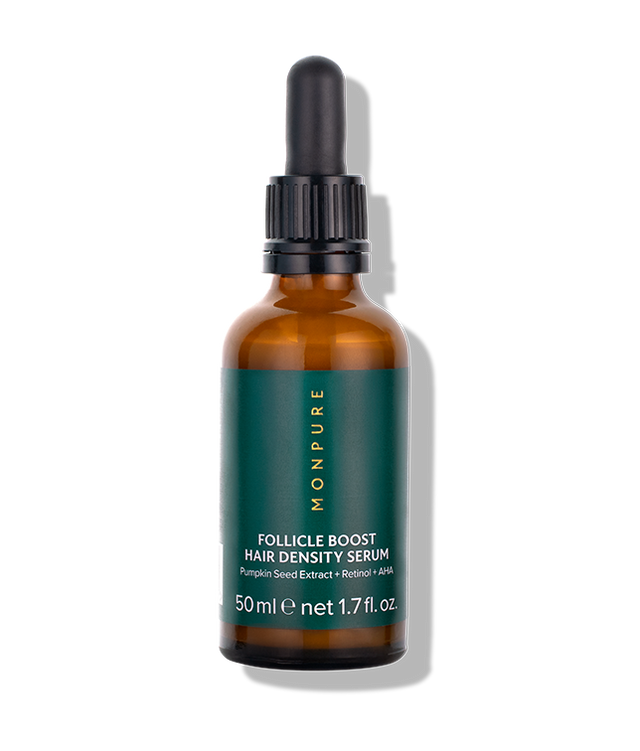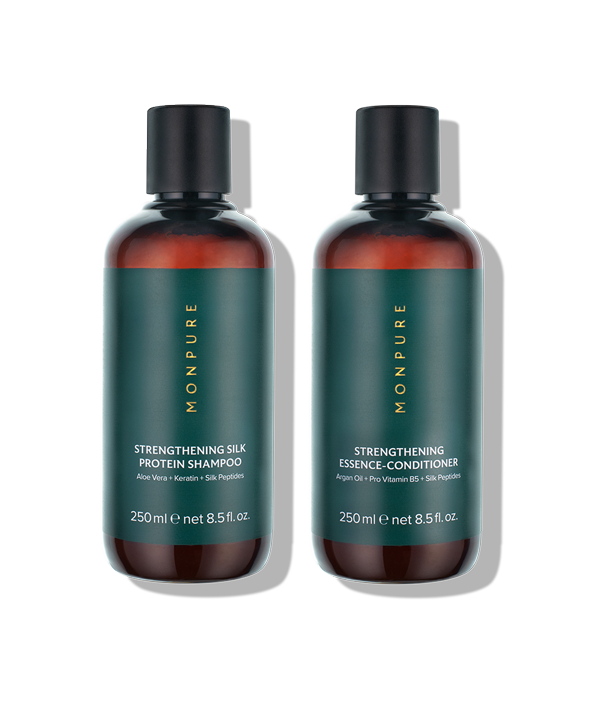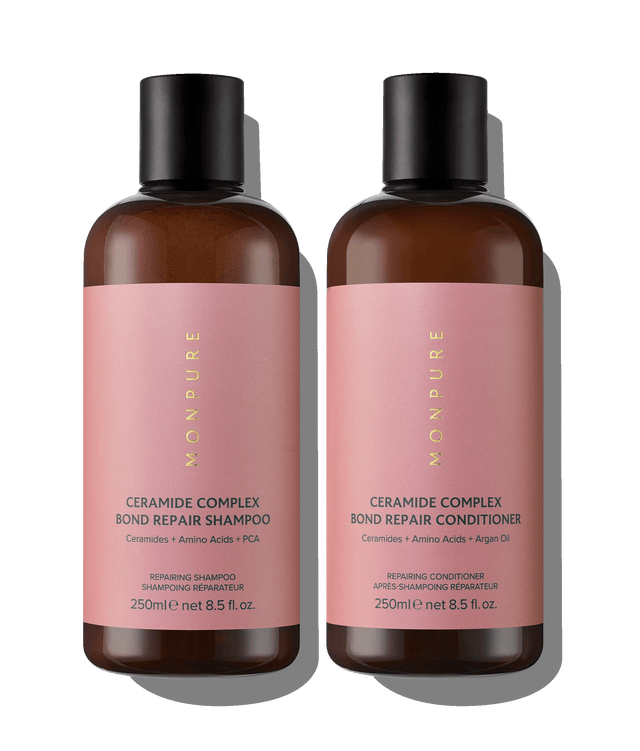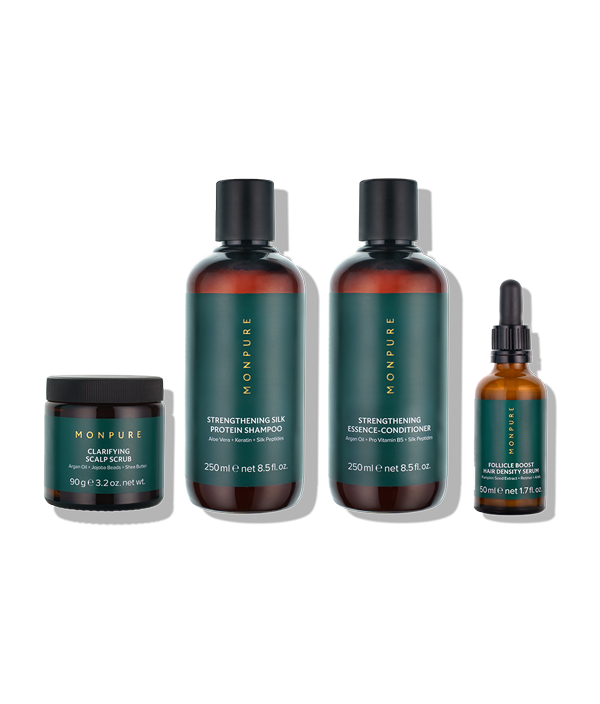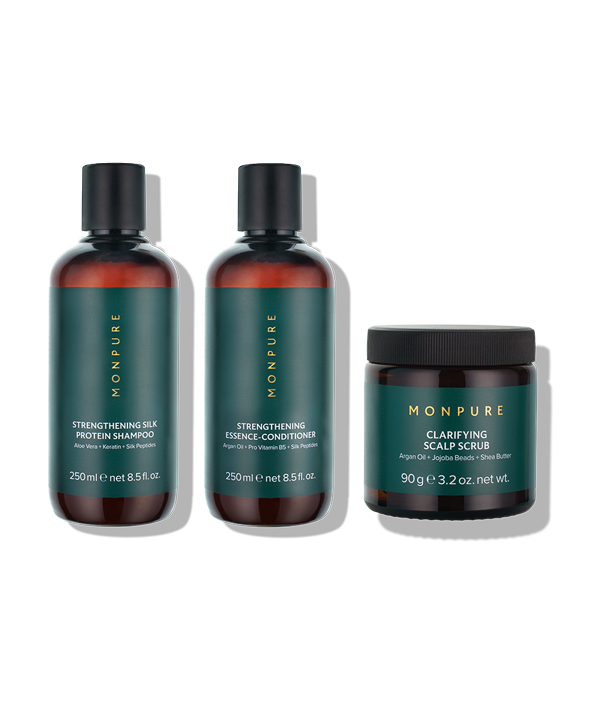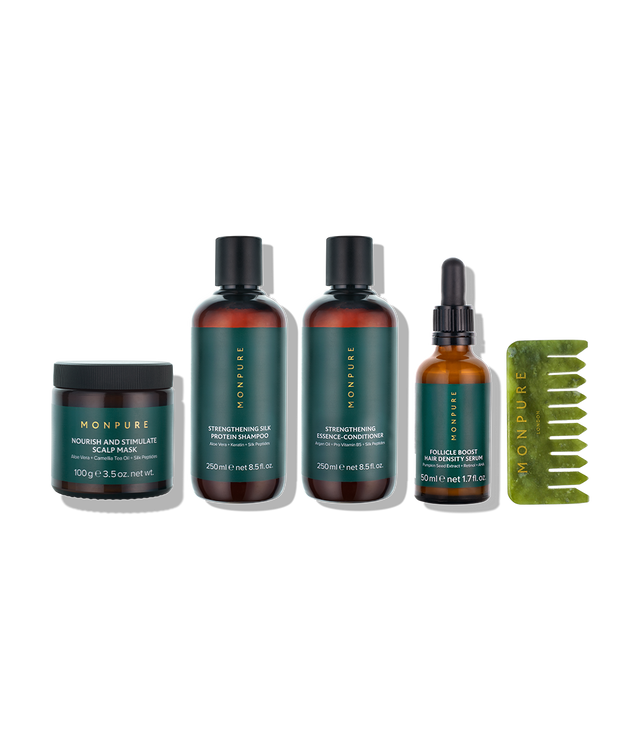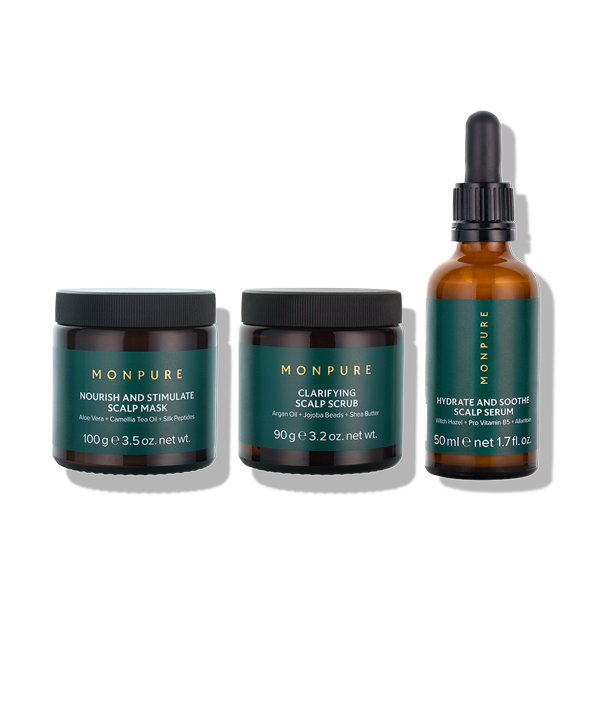Grey hair is a natural part of ageing and is something many people start to experience at some point in their lives. Some embrace the salt and pepper locks as a sign of wisdom and maturity. However, others are keen to hang on to their natural hair colour for as long as possible, especially when those first few stray greys begin to show.
Here at MONPURE our main focus is how scalp care affects the condition of hair, but it can also play a part in the greying process. In the hair follicle, melanocyte cells produce the melanin pigment that gives hair its colour. It’s believed grey hair is caused by a reduction of melanocytes in the hair matrix, leaving hair strands lacking colour. So what causes this depletion of melanocytes and can you reverse grey hair once it has started? Let’s take a closer look.
What causes grey hair?
Our resident General Practitioner, Dr. Simmy Kaur, explains: “Some medical conditions can contribute to premature greying of the hair for example; vitamin B12 deficiency anaemia, vitiligo, hypothyroidism (under-active thyroid) and osteopenia (low bone density). In addition to this, various studies have shown that cigarette smoking, ultraviolet (UV) light, pollution, alcohol consumption and even emotional stress can also contribute to premature greying.”
Genetics
Grey hair is largely genetic, so you can first look to your parents and grandparents to get an idea of when you may start to go grey. However, lifestyle factors can speed up or delay this natural process.
Oxidative Stress
An accumulation of hydrogen peroxide at the base of hair follicles is thought to cause oxidative stress that depletes melanocytes. Anti-oxidants may help counter this.
Smoking
Chemicals from cigarette smoke can increase oxidative stress and inflammation, which damage melanocytes.
Nutrient Deficiencies
Low levels of vitamin B12, folic acid, copper and iron are linked to premature greying. Ensure you get enough of these nutrients in your diet.
Autoimmune Disorders
Diseases like alopecia areata, pernicious anaemia, and vitiligo can cause premature greying, as they damage melanocytes.
Ultraviolet Radiation
UV exposure generates free radicals that can reduce melanin. Wear sunscreen and hats to protect hair from sun damage.
Emotional Stress
Stress produces hormones like cortisol that may deplete stem cells that regenerate pigment. Managing stress can help delay greying.
Pollution
Environmental pollutants contain heavy metals that generate free radicals damaging to melanin. Limit exposure when possible.
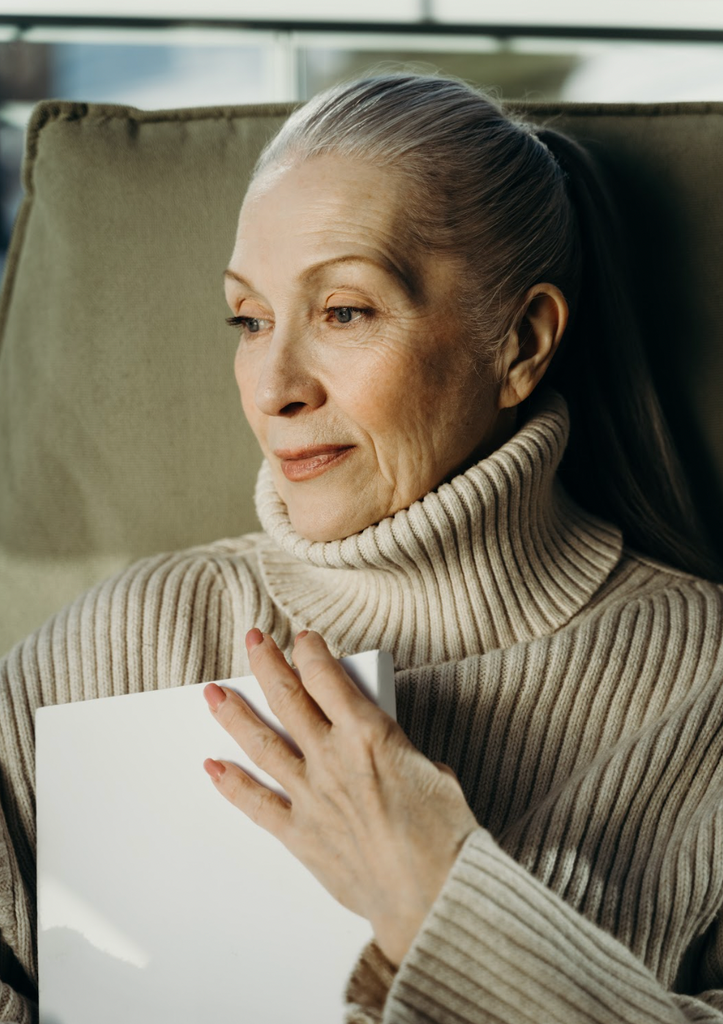
Is grey hair reversible?
“Greying of the hair is usually progressive and permanent,” Dr. Kaur explains. “But there are occasional reports of spontaneous re-pigmentation of grey hair. Is there something you can take to reverse it? Sadly no – but you do have the option of taking really good care of your hair in the first place to make sure that you give it every chance of staying colourful and fresh!”
And while most grey hair isn’t reversible, there are steps you can take to keep the greys at bay, as Dr Kaur explains. “The main thing to do is to make sure that the hair root has a fighting chance to thrive and stay healthy by using a really good quality, silicone and sulphate-free shampoo and conditioner such as MONPURE’s Strengthening Silk Peptide Shampoo and Essence-Conditioner. Recent clinical trials have shown that the addition of antioxidants to shampoos – for example, vitamins C and E (which MONPURE’s shampoo has) – can also help prevent greys. Green tea extract (which stars in the Nourish and Stimulate Scalp Mask), selenium, copper and melatonin have additionally been shown to have attractive anti-ageing and anti-greying properties. MONPURE's formulas contain the most high quality ingredients, including antioxidants and silk peptides to make sure that your hair can thrive!”
How to prevent grey hair
While grey hair can't be reversed once the hair shaft lacks melanin, there are some ways to potentially slow down and prevent premature greying:
Improve Antioxidant Intake
Consume more colorful fruits, vegetables, green tea, and supplements with antioxidants like vitamins C and E to combat oxidative damage.
Manage Stress
Chronic stress produces hormones that can deplete melanocytes. Try yoga, meditation, and other stress-busters.
Avoid Smoking
Quit smoking and avoid secondhand smoke, as the toxins create inflammation and free radicals.
Use Sun Protection
Wear hats and use broad spectrum sunscreen to shield hair from UV damage.
Get Checked for Deficiencies
See your doctor to test for anemia, thyroid issues, vitamin B12 deficiency, or other conditions.
Eat Copper-Rich Foods
Foods like seafood, nuts, legumes, whole grains, and dark chocolate provide copper for melanin formation.
Embracing Grey Hair with Confidence
Rather than viewing greying as something to hide or reverse, embrace it as a natural part of the ageing process and take steps to maintain and enhance your hair’s longevity. Grey hair that is properly cared for can look incredibly chic, stylish and radiant at any age. Here are tips for optimising the health, shine and beauty of your locks with confidence as they transition to grey:
- Nourish strands with hydrating hair oils and moisturising conditioners to prevent brittle, dry texture as melanin levels reduce. Try the Ultralight Healthy Hair Oil and Strengthening Essence-Conditioner.
- Exfoliate and massage the scalp to boost circulation, clear product buildup and maintain a healthy foundation for hair growth. Try the Clarifying Scalp Scrub.
- Get trims every 6-8 weeks to prevent split ends and maintain condition.
- Work with your natural texture and adjust styling practices to complement grey strands.
- Embrace the beauty of your natural colour evolution - healthy, vibrant grey hair sends a wonderful message of confidence and well-ageing.

Frequently Asked Questions
What is the average age to get grey hair?
Most Caucasians start to grey in their mid-30s, Asians in their late 30s, and Africans in their mid-40s. But many see their first greys much earlier or later.
Does lack of sleep cause grey hair?
No direct link exists, but lack of sleep does increase stress hormones that may deplete melanocytes over time. Adequate sleep supports healthy hair.
Why does hair turn white instead of grey sometimes?
When all melanin production stops, grey hair goes completely white. Ethnicity, genetics, and age affect whether hair skips grey and goes white.
What is the difference between white and silver hair?
White hair has no melanin, while silver hair has some melanin mixed with white hairs for a glistening sheen. The terms are sometimes used interchangeably.
What colour should your eyebrows be with grey hair?
Either embrace natural grey brows for an elegant, sophisticated look or use eyebrow tint to match your original brow colour if you wish to.
While grey hair is largely irreversible, using antioxidant scalp care products, improving your diet, managing stress, and avoiding damaging behaviours can help delay premature greying and nurture your locks. Embrace your natural hair journey, because healthy, confident you is always in style!






